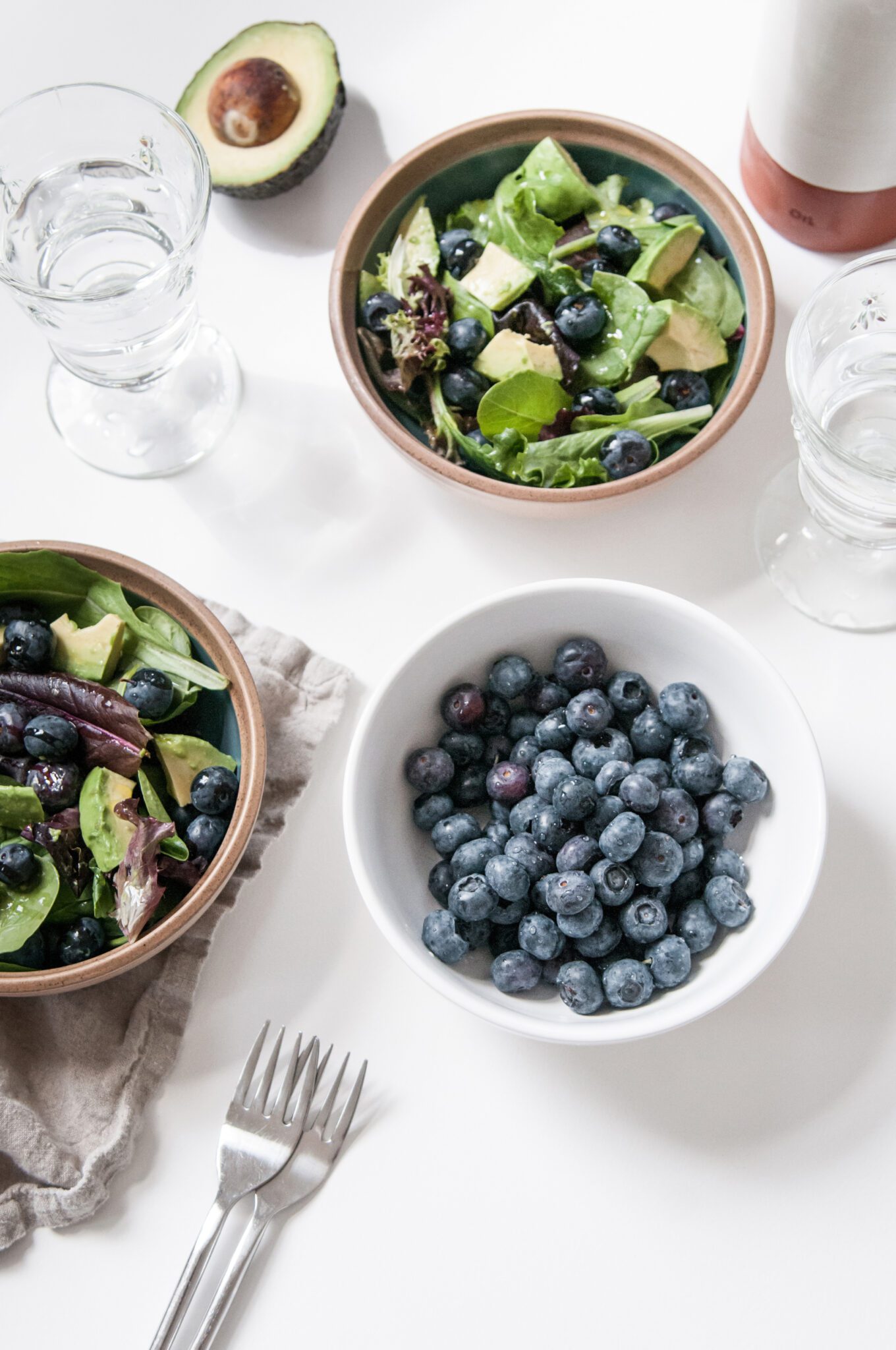
Even if you’re hearing about collagen peptides for the first time, there’s a good chance you’re familiar with it. Celebrities, nutrition influencers, skincare brands and supplement companies have been talking about collagen for years, suggesting it may be the one thing we need to prevent wrinkles, sagging skin, and achy joints as we age…
Because it always comes down to doing that one thing, right?
Some have even called collagen a magic bullet against aging. After all, the body’s ability to naturally produce collagen reduces as we age — especially after menopause — so it makes sense that supplementing with collagen could be beneficial.
But is collagen really worth the hype?
Collagen: a miracle cure for aging?
I’ve heard a lot of buzzwords in my more than 20 years as a Registered Dietitian, and collagen is one I can get behind. I even wrote a blog post about it back in 2017, where I talked about the research-backed benefits of collagen supplementation for skin, bones, and joints (like how collagen supplements were shown in several studies to ease joint pain and stiffness, improve skin elasticity and smoothness, and improve bone density).
At that time I also reminded my readers to avoid calling collagen a miracle cure or magic elixir just yet. At least not until we had more conclusive research to support these claims.
Flash forward seven years and collagen is just as much of a buzzword today as it was in 2017! But even now, the question remains: are these claims about collagen supplements truthful? Can collagen really improve the health of our skin, bones, and joints as we age?
I’m by no means calling collagen a “miracle cure for aging” or a “magic elixir,” but a growing body of research suggests that yes, collagen supplementation can improve our skin, bone, and joint health as we age. With a few caveats.
Before we dive into those, let’s talk about what collagen is and how it functions in the body.
What is collagen?
Collagen is a fibrous protein made up of the non-essential amino acids glycine, proline, and hydroxyproline (AKA three of the 20 building blocks of protein). This means our bodies can produce collagen naturally with some help from these amino acids and other nutrients like vitamin C, zinc, and copper.
As the primary building block of our bones, joints, tendons, and cartilage, collagen accounts for about 30% of the body’s total protein. It supports the structure of our connective tissues (like our bones, joints, and cartilage); keeps our muscles healthy and strong; and supports smooth and elastic skin.
However, as we talked about earlier, the body’s natural ability to produce collagen reduces as we age. Other factors such as menopause, UV exposure, smoking, alcohol consumption, not getting enough sleep, and eating a poor-quality diet can damage our collagen as well.
Collagen breaks down more quickly as we age, putting us at risk of:
- Osteoarthritis.
- Joint and bone pain.
- Muscle aches and muscle weakness.
- Stiff ligaments.
- Mobility issues.
- Skin concerns like dryness, fine lines, and wrinkles.
This is where collagen supplementation — specifically collagen peptides — can help. While collagen in its whole form can’t be absorbed in the body until broken down into smaller amino acids, collagen peptides are absorbable via the GI tract.
Whole collagen vs collagen peptides
The main difference between whole collagen and collagen peptides is that collagen peptides are taken as supplements. On the other hand, whole collagen is found in foods like fish, poultry, and red meat. Collagen peptides are more easily and effectively absorbed in the body than whole collagen.
Collagen peptide supplements
Unlike whole collagen from animal-based food sources, collagen peptides are small, broken-down pieces of collagen made from animal bones, hides, and cartilage. They’re usually made from the connective tissues of cows and occasionally from chicken, fish, and eggs.
Sometimes sold as hydrolyzed collagen, collagen peptide supplements are available as pills, tablets, gummies, and powders, just like any other type of supplement. Some companies — including the German company GELITA® — have even started adding collagen peptides and collagen derivatives like gelatin to pharmaceutical-grade vaccines, suppositories, and pastes.
Whole collagen from food sources
Whole collagen is found in food, specifically animal-based foods like meat, fish, and bone broth. These foods contain whole collagen and other nutrients that help support the natural production of collagen in our bodies.
However, it’s unclear whether eating collagen-rich foods benefits our skin, bones, and joints in the same way that collagen peptide supplementation seems to. I know this may sound strange coming from someone who takes a “food first” approach whenever possible (I am an integrative dietitian after all), but let me explain…
Natural food sources of collagen contain collagen in its whole form. When we consume whole collagen in the form of collagen-rich foods, the stomach breaks these collagen proteins down into amino acids that the body can use as collagen or as protein. These amino acids from food sources are distributed throughout the body and used however, and wherever, they’re most needed.
Unfortunately, we don’t have the ability to choose how or where these amino acids are used in the body. As much as we’d love to send these amino acids right on over to our wrinkles, bones, and achy joints, this just isn’t possible. Our bodies are far too complex!

Examples of foods containing collagen
Although eating collagen-rich foods doesn’t directly increase the amount of collagen in the body, the amino acids these foods provide can support the body’s natural production of collagen. Collagen-rich foods contain amino acids and other nutrients that support the natural production of collagen — including glycine, proline, hydroxyproline, zinc, copper, and vitamin C. They also contain many other vitamins and minerals that support our health.
However, it isn’t just collagen-rich foods that support the body’s natural production of collagen. Other foods, including plant foods, can provide us with the nutrients our bodies need to produce collagen naturally (e.g. amino acids, copper, zinc, and vitamin C).
Several food sources that support natural collagen production include:
- Collagen-rich foods like fish, meat, poultry, oysters, dairy, and eggs.
- Plant-based protein sources such as legumes, soy, whole grains, nuts, and seeds.
- Fruits and veggies including berries, citrus fruits, tomatoes, and leafy greens.
Plus, you can’t go wrong with incorporating a variety of foods into your diet, especially colorful foods! A well-balanced diet provides the nutrients your body needs to produce collagen naturally, increase the amount of beneficial microbes in the gut, and support your metabolic health.
Benefits of collagen peptides
If you’re curious about supplementing with collagen for bone, skin, and joint health, collagen peptides are the way to go. Studies have shown that collagen peptides can:
- Decrease cellulite, reduce skin waviness on thighs, and improve skin density when taken as collagen peptides with VERISOL® (Schunck et al., 2015).
- Reduce wrinkles, increase skin thickness, and improve skin structure when taken in the form of hydrolyzed fish cartilage (Campos et al., 2021).
- Improve skin hydration, elasticity, roughness, and density when taken as collagen peptides with ELASTEN® (Bolke et al., 2019).
- Stimulate collagen metabolism, activate the growth of new joint cartilage, reduce joint pain and stiffness, and improve mobility when taken as collagen peptides with FORTIGEL® (GELITA®).
- Increase bone mineral density, increase bone formation, and lower bone resorption when taken as collagen peptides with FORTIBONE® (König et al., 2018).
The results of these studies sound pretty promising, don’t you think? I’d say collagen peptides are worth a try! Our skin, bones, and joints can use all the love they can get as we age.

How to supplement with collagen peptides
Being that collagen supplements are safe and low-risk, and there’s plenty of research that suggests they improve bone, joint, and skin health as we age, collagen peptides are certainly worth trying. There are lots of different ways to supplement with collagen peptides, from taking a daily collagen capsule as directed to mixing a collagen powder or creamer into your morning cup of coffee.
For specific product recommendations, head over to my Fullscript dispensary and click on “Collagen Supplements” under “Favorites”. Here, you’ll find my top picks for collagen powders, creamers, and capsules, including products that contain collagen peptides with Fortibone®, Fortigel®, and Verisol®.
Fortibone®, Fortigel®, and Verisol® are three research-proven compounds for bone, joint, and skin health, containing Bioactive Collagen Peptides® (BCP) scientifically shown to improve skin, joint, and bone health. If you have questions or would like to learn more about collagen peptides, please don’t hesitate to reach out!
Not sure which collagen supplements are right for you? Join my Supplement Club to get professional-grade supplement recommendations from me, a Registered Dietitian specializing in functional nutrition and metabolic health for women. Members get 15-20% off all herbs and supplements purchased inside my online apothecary.